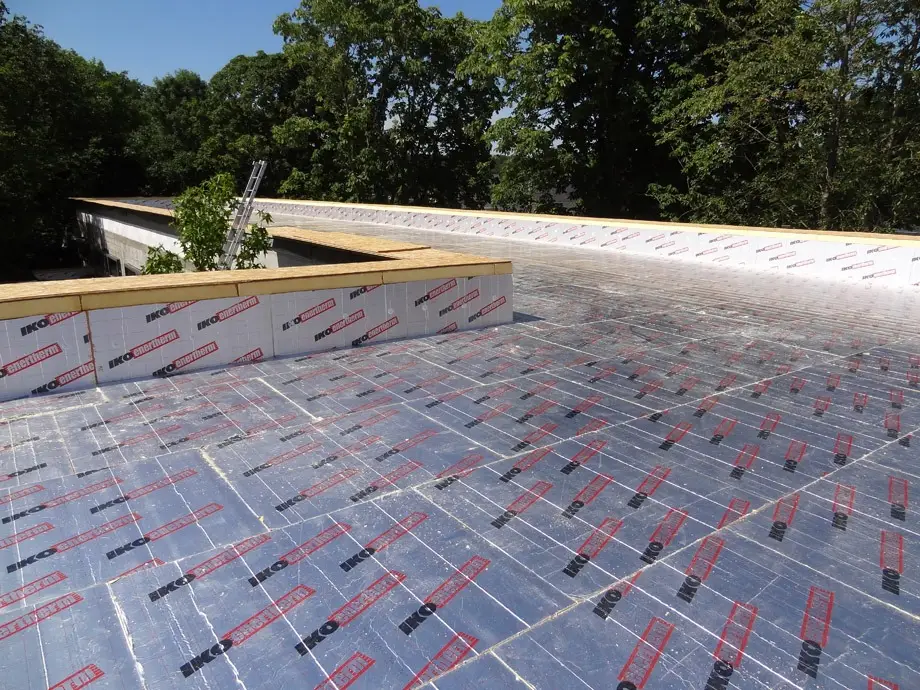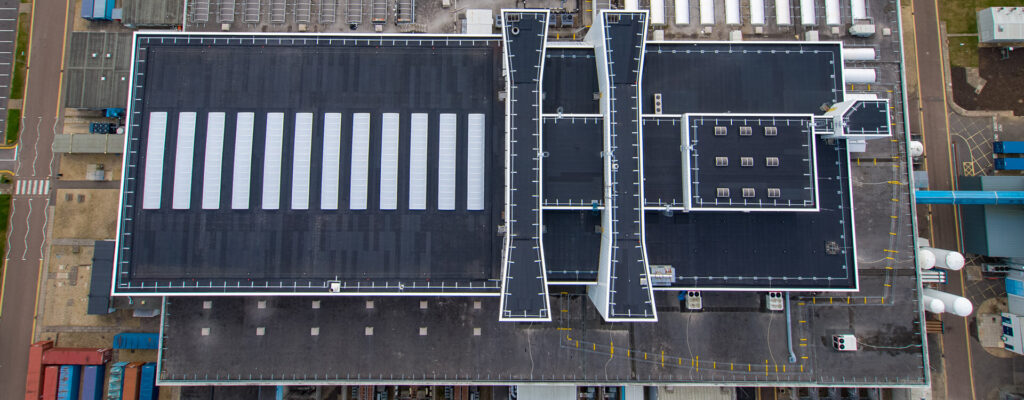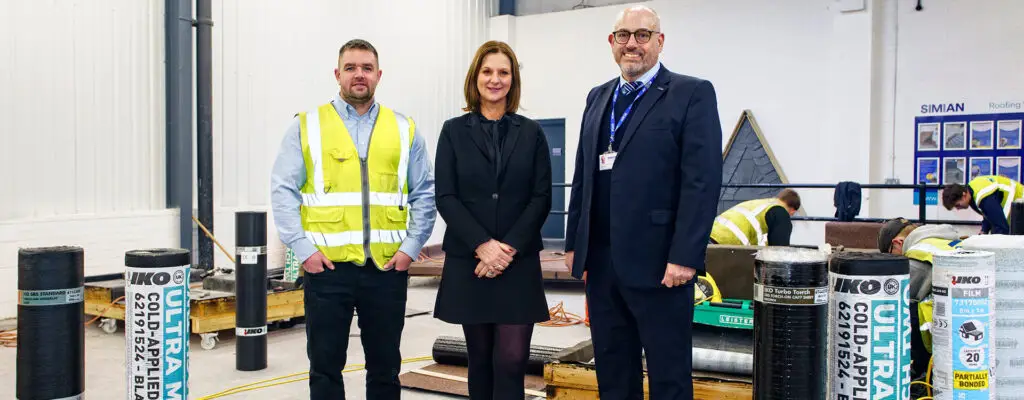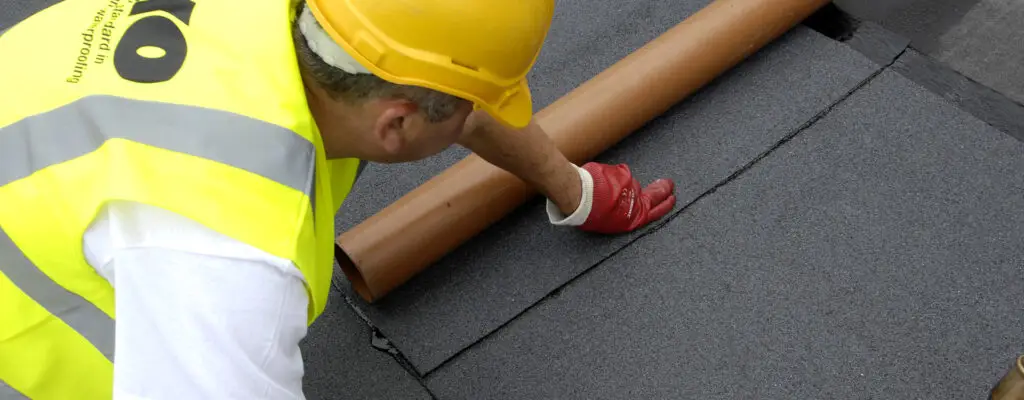The compressive strength of the chosen thermal insulation should be enough to bear both dead and active loads imposed by the flat roof and its use.
The product needs to offer sufficient compressive strength for the intended application – and also be capable of withstanding any demands placed on it during installation.
Compressive strength declarations are made by insulation manufacturers, based on recognised test standards.
It may not always be clear to specifiers and contractors what those declarations mean and what level of loading the product is capable of withstanding as a result.
What type of load is thermal insulation subjected to on a flat roof?
Dead loads are the static weight imposed by anything installed over the material. In a conventional warm flat roof, the thermal insulation usually only has the waterproofing layer installed over it – a thin, lightweight membrane that imposes no meaningful load on the chosen insulation.
More substantial dead loads are possible if a green roof system is installed over the warm roof build-up. The weight of growing medium and plants as well as the maximum predicted rainfall volume held by the growing medium, and the distribution of the weight over the roof area, should be considered as part of structural calculations.
Blue roof systems also need specialist consideration.
Active loads are those imposed by the building use. On the majority of warm flat roofs, roof access is restricted to occasional foot traffic for maintenance only. The waterproofing and thermal insulation are therefore subjected to little in the way of active loads.
Of course, active loads are also imposed during installation. It is often necessary for site operatives to walk over the insulation to install the waterproofing or carry out other installation works.
The insulation should be treated with respect, in accordance with the manufacturer’s recommendations to avoid point loads that could damage the product.
How is the compressive strength of thermal insulation measured?
The compressive strength of thermal insulation is measured by a method described in the formal test standard EN 826: Thermal insulating products for building applications – determination of compression behaviour.
A load is applied to the insulation sample being tested. A result is declared when either the material reaches the limit of elastic behaviour (i.e. it fails), in which case the result is the load ‘at yield’, or the insulation compresses by 10% relative to the original sample thickness.
When the material fails before it has been compressed by 10% then the declared load at yield is the compressive strength of the material.
No thermal insulation material would ever be used in a situation where it would be subjected to the tested loads. The amount of compression and the risk of failure would be inappropriate.
EN 826 is clear that its test method is employed to obtain ‘reference values’ that allow appropriate loading calculations to be carried out by a structural engineer.
What compressive strength do IKO enertherm insulation boards achieve?
IKO PLC offers two rigid polyisocyanurate (PIR) foam thermal insulation boards for use in warm flat roof build-ups: IKO enertherm ALU and IKO enertherm MG.
IKO enertherm ALU is a foil-faced insulation board and achieves a declared compressive strength of 175 kPa. IKO enertherm MG has a mineral-coated glass fibre facing and achieves a declared compressive strength of 150 kPa.
This means they are capable of bearing static, evenly distributed loads of approximately 17.5 tonnes/m2 and 15 tonnes/m2 respectively without failure.
For inverted roof constructions, IKO enertherm XPS and IKO enertherm EPS both offer a high declared compressive strength of 300 kPa, capable of bearing the loads associated with ballast and foot traffic.
As described above, these are reference values. For any given project, loading calculations should be carried out by a qualified structural engineer using appropriate safety factors. Neither insulation product should be subjected to point loads, and it is recommended to protect the boards during installation to prevent damage.
IKO PLC offer comprehensive technical support, including assistance with loading enquiries and questions about the compressive strength declarations of our thermal insulation products.
Contact us for expert advice on specifying the right roofing system for your next project.



